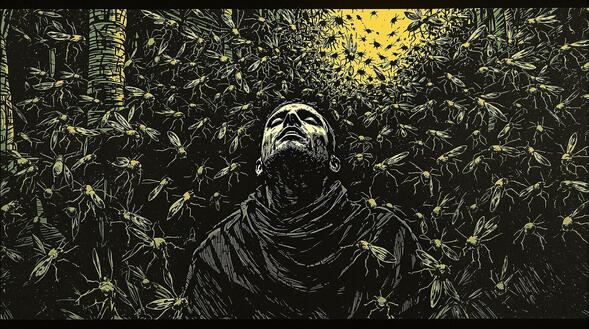Here Zarathustra addresses an unnamed friend, urging him to withdraw from society’s clamor and seek solitude. Zarathustra observes his friend overwhelmed and wounded by both the “noise of the great men” and the stings of the insignificant—a metaphor for society’s influential figures and the masses who can harm through their pettiness.
He implores his friend to find refuge in the quietude of nature, symbolized by the silent communion with the woods and rocks, and to emulate the steadfast tree that listens over the sea. This solitude is presented as a sanctuary from the marketplace, which represents the public sphere filled with “great actors” and the buzz of “poisonous flies”. The marketplace is depicted as a place where true value is lost amidst spectacle and superficial acclaim.

Flee, my friend, into your solitude! I see you deafened by the noise of the great men and stung by the small ones.
Zarathustra critiques the masses for their inability to comprehend true greatness—the creative act of establishing new values. Instead, they revere those who perform and showcase grand ideas without genuine understanding. The “great men” are mere actors who lack deep conviction, easily shifting beliefs to maintain influence. They rely on sensationalism, equating persuasion with proof and valuing blood—the ultimate sacrifice—as the strongest argument.
The narrative alludes to the peril faced by innovators and thinkers who dwell among the populace. The “poisonous flies” symbolize the small-minded individuals who, through envy and resentment, inflict countless minor injuries that can cumulatively lead to the downfall of the great, much like raindrops erode even the sturdiest structures. Zarathustra warns that engaging with these detractors is futile due to their sheer number and persistent malignity.
